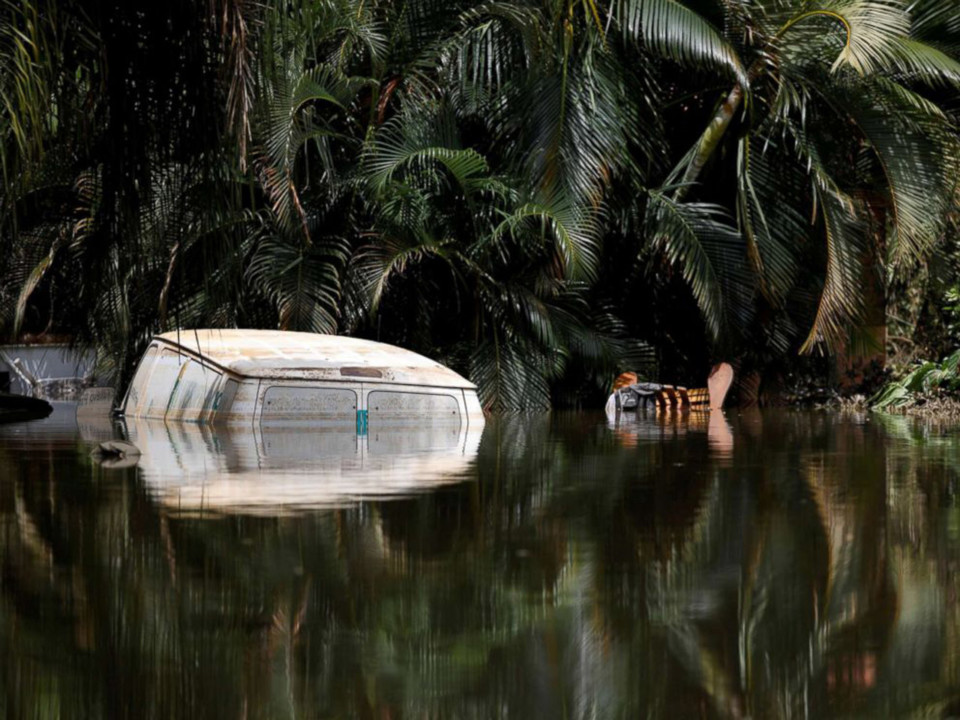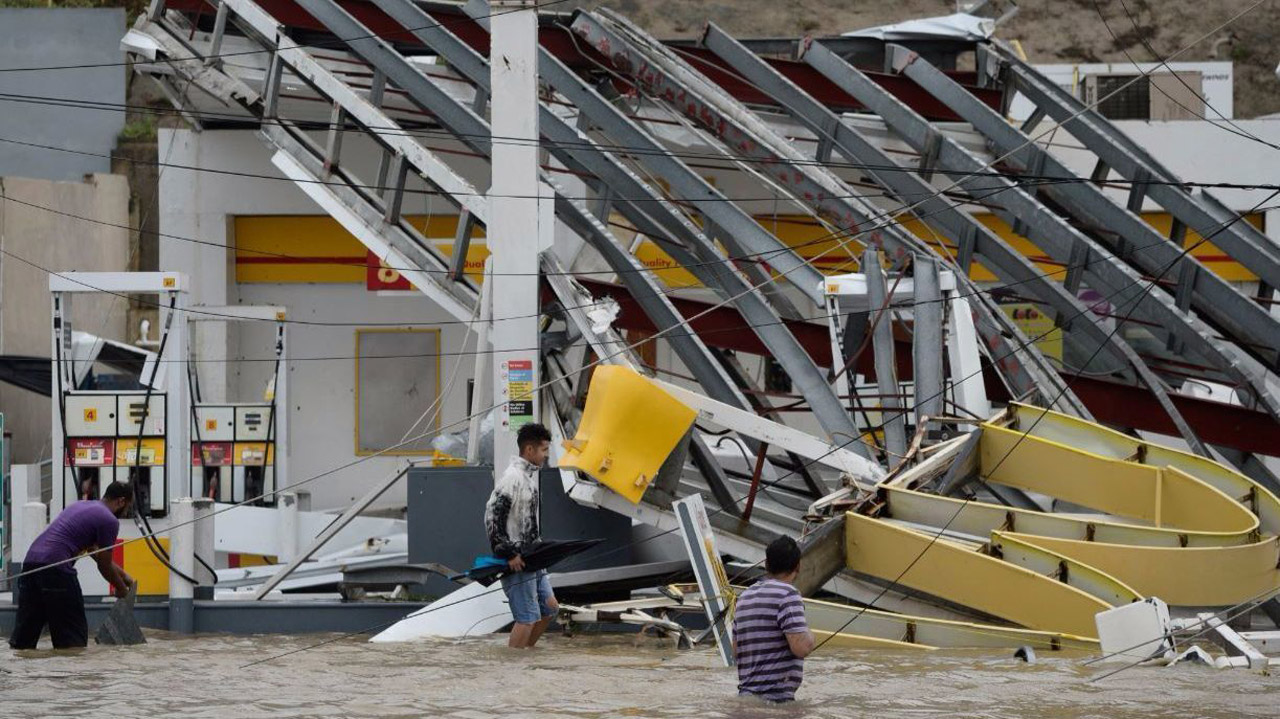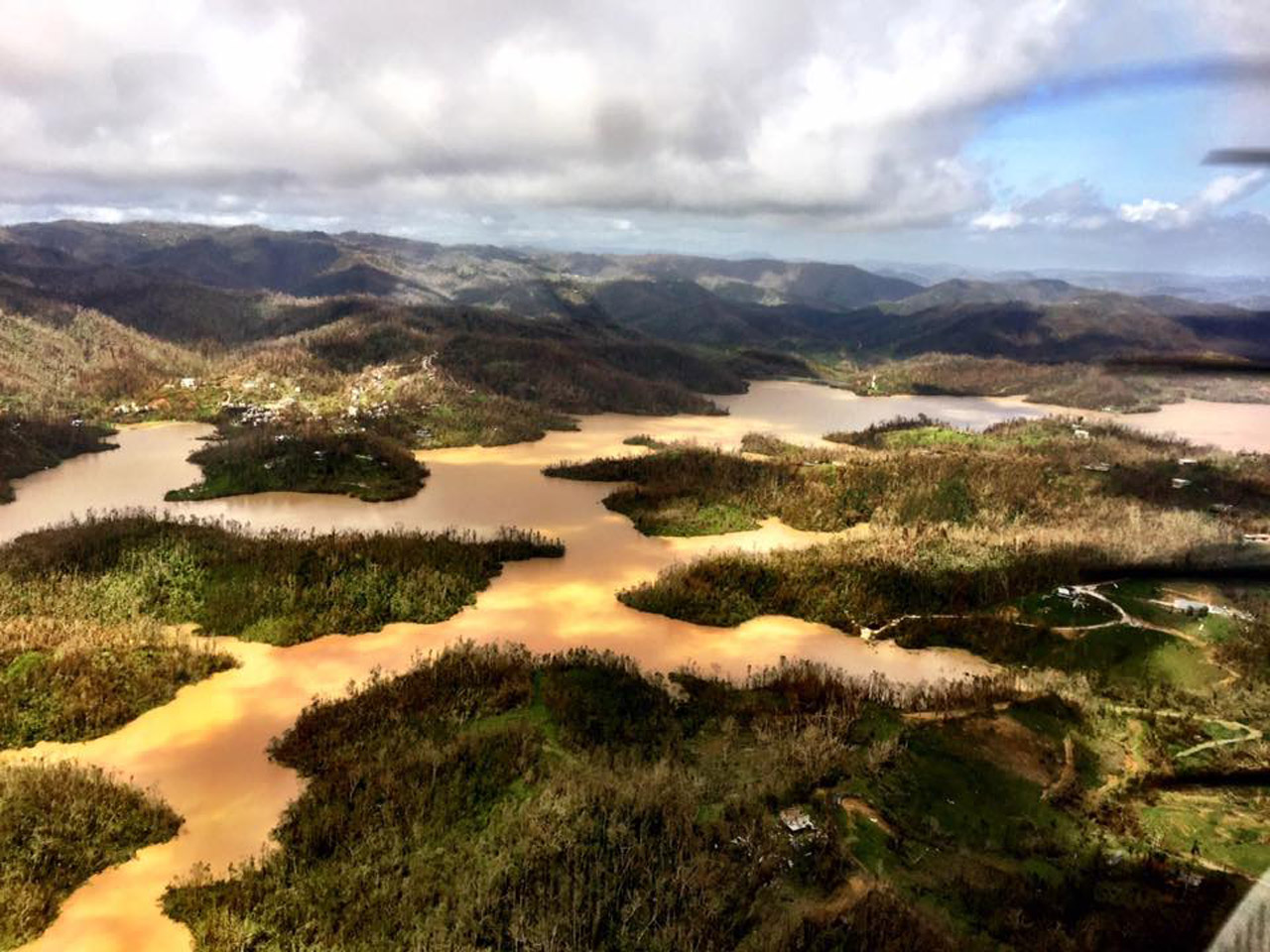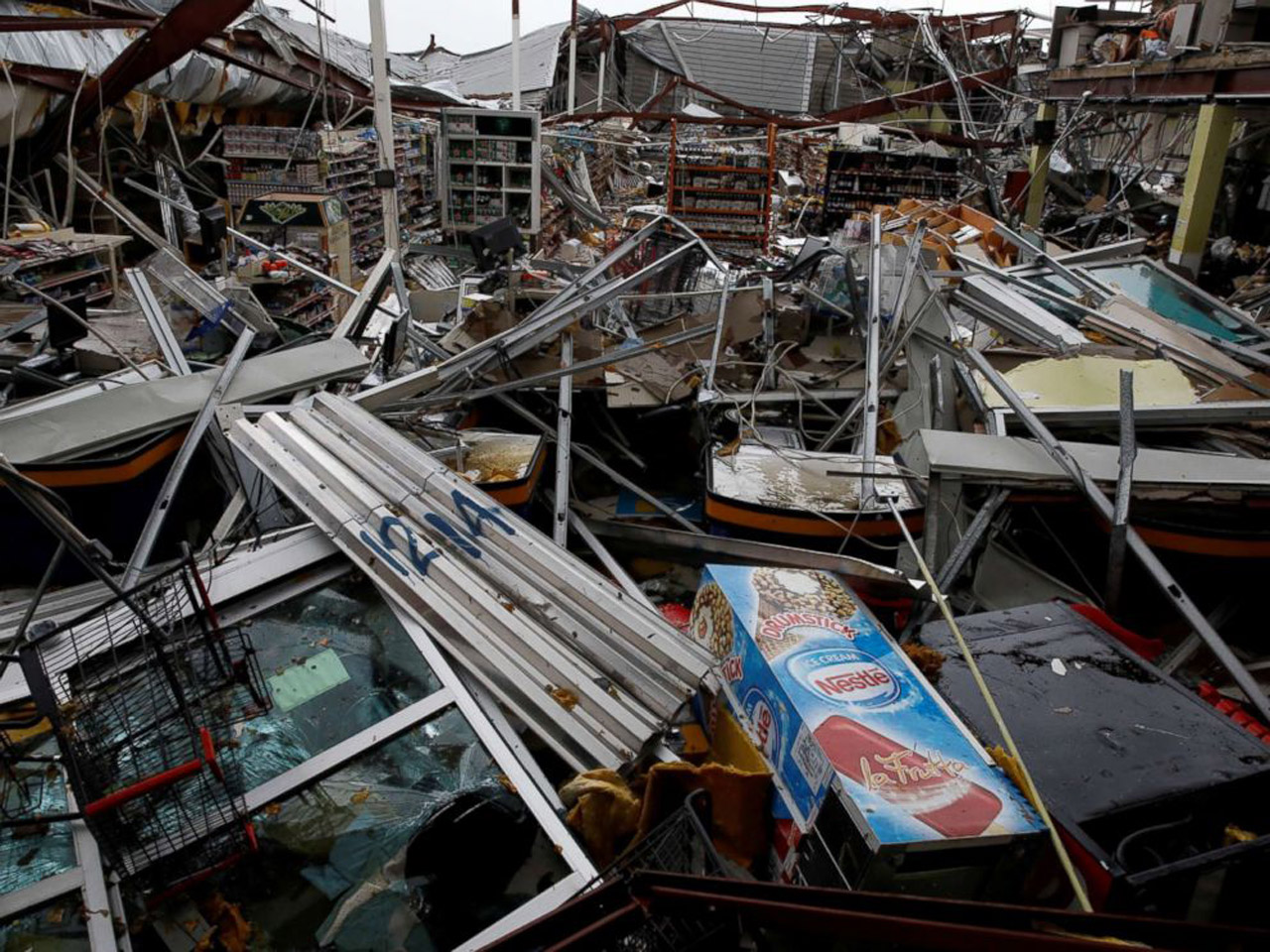by Francisco San Miguel
Francisco San Miguel is the former president of the Puerto Rico Pest Control Association. He was kind enough to share his observations and experiences with the aftermath of Hurricane Maria. Any opinions expressed in this essay are strictly his own.
Typically, a pest control story would start with stories of accumulated garbage and food rotting, ready for flies and rodents to feast and multiply. The suffering here is so much more tragic than that; I would be remiss to start there. This storm completely destroyed the entire island’s electric power grid and we will easily be four to six months without full restoration of power.
There is no drinking water; at this time, only one-fifth of the population is receiving water with minimal plants operating limited hours on generator power. This means that everyone, island wide, is storing water in containers, which will most certainly lead to an Aedes/Aegypti mosquito surge in a few weeks.
[EDITORS NOTE: The Aedes/Aegypti mosquito is the breed primarily responsible for Zika virus.]

This unprecedented need to store water wherever and whenever it can be found, combined with flood-waters that have still not receded in many areas, will more than likely result in epidemic- levels of mosquito-borne viruses afflicting an already suffering population.
Puerto Rico just went through extremely harsh Zika and Chikungunya virus nightmares the past couple of seasons. Four strains of dengue have always been present, and the situation will be aggravated this season with doctors’ offices destroyed or lacking power and many hospitals struggling to reopen and serve their communities.
An entire island is trying to figure out how to operate solely on generators, in those limited locations where generators are even available. There is not enough diesel fuel to go around, particularly to thousands of isolated communities cut-off from aid distribution by impassible roads.
The flooding in both the suburbs and and heavily populated areas has produced a stench that I can only assume includes rats, snakes, iguanas, stray dogs and cats, birds, bats, and other wildlife rotting below the water level, as well as other plant material.
Prior to Maria, Puerto Rico was an island that, sadly, was accustomed to witnessing thousands of stray dogs roaming the streets, despite many local community efforts to curtail this reality; today, not a stray animal is to be found. Their stark absence is a chilling, daily reminder of the death and destruction afflicted upon animal life on the island by the unprecedented deadly force of Hurricane Maria.
In my house as in many, you see bees scrambling and confused trying desperately to find food, as there are no flowers left. Our beautiful Puerto Rican landscape of September 19, with its dazzling array of green shades highlighted by glorious colors of tropical flowers, was transformed to waves of brown on September 20.
The trees that still stand are naked and the ground is littered with branches that were once homes to countless animals. While chain sawing the palm trees that fell in my backyard, a few live bats flew away, and I sadly wonder if they will be able to find a new home. It is heartbreaking.
From my balcony I see parakeets, doves, falcons, macaws, and other birds disoriented, looking away, so sad. The sizes of flocks who regularly flew from tree to tree, local neighbors who you could count on daily to brighten the sky, have dwindled to those few lucky survivors who somehow found shelter from the deadly storm.
I live by a small creek which runs behind my house, and now that the leaves are gone, I can count more than 60 large green iguanas on the tree trunks. I did not know we lived among so many of them. For years and years, they lived there incognito, hidden and camouflaged by the rich flora. There is nothing to hide them now.
Though they scare my wife, I marvel at how well they survived a storm that decimated so many other species of animal life. The iguana is considered a pest as it eats birds eggs, and flowers and forces other species away from their territory, but I cannot help but admire its tenacity. At a time like this, survival of any kind is heartwarming.
The desperation and misery among our United States citizens in Puerto Rico is tragic. People on every square inch of this island have either lost their homes entirely or have had them damaged by the violent winds, driving rain, and merciless flood waters.
Countless citizens are stranded in communities, unable to reach help after their cars were destroyed or the roads leading to their communities were rendered rivers or blocked off by thousands of fallen trees, cement posts, electric cables, and flying projectiles of all sorts that litter what were once roads.
For those who had emergency generators prior to Maria, there is a relentless scramble to obtain limited gasoline and diesel. Demand for fuel for power plants is like in the movie Mad Max. We have four to eight hour lines in the 90+ degree tropical heat to purchase a limited and rationed amount of gas, often having to choose between filling your car or your portable tank (if you are one of the few and lucky ones who has a personal generator).
There are very few mobile phones working nor Wi-Fi, as the telecommunications infrastructure was taken down by the relentless winds of Maria. Satellites residing at the highest points of the great tropical forest mountains that cut across the center of our dear island were rendered useless after Maria.
Manmade technology was no match for the forces of nature, a reality check which will have every citizen of Puerto Rico pondering our blind dependence on and confidence in the false security of a wireless device for years to come.
Our home is one of few that still had an old-fashioned landline phone, a now precious commodity which has become a life-line for my family and friends who were desperate to reach out to family and friends stateside to reassure them of our safety. It is now the only way to communicate should an accident or illness or emergency arise. It is the lifeline that allows my stateside family to contact me and reassure me daily that my young, diabetic daughter living and studying in Portugal is okay, as I can no longer receive the daily digital warnings on my useless iPhone should her blood-sugar level drop dangerously low. I have never had a greater appreciation for the “old-fashioned.”
In some ways, I am not embarrassed to say, this experience is a blessing in disguise.
While I certainly wish I could turn back time and change the course of events so that this would never have happened, it is the nature of an optimistic culture like Puerto Rico to always look for the light shining out through the clouds.
For example, people in Puerto Rico are learning the hard way that we are prisoners of mobile phones. As we stand on lines for hours at a time to enter any store which has been able to open, whether it be a supermarket or pharmacy or fast food restaurant, I report with pride that despite the heat and frustration and fear, most Puerto Ricans now spend that time talking with those in front and behind them in line.
No longer able to use their smartphones, faces that previously would be looking down are looking up, sharing stories, finding ways to make one another smile and laugh and make the best out of a collective tragedy. People are talking more with one another and supporting each other in ways so much more personal and meaningful than an emoji happy face could ever do.
Hurricane Maria time-traveled us back to the Eighties – when we would tell our employees: “call the office every couple of hours to know of any changes in your route.” This forced personal contact is an important lesson on the important power of intimate communication to get through truly devastating times like this. There is no digital substitute for a friendly face, an outreached hand, a warm embrace, or a shared tear.
An imposed national curfew intent on keeping the scary, dark streets safe at night forces me to look up each night at the blackened sky whose stars have never shone so brightly, the stars the only light to be found. I ponder how Puerto Rico got so disconnected from a world united by such grand skies.
The outside response to Puerto Rico’s crisis has sadly lagged behind what was seen in Houston and Florida after Hurricanes Harvey and Irma. In part, since we are an island, the logistics are more complex, and no doubt the wiping out of the communications infrastructure and electric power grid contributed to the delay in the initial week after Maria wreaked havoc across our island.
But if I accomplish anything with this article, I pray it be for people to understand that this is a true humanitarian crisis which requires a true humanitarian response. There is no room for politics or pause; lives are at stake each day. Lives of new born babies and elderly in hospitals whose life-saving equipment depends on diesel fuel now to operate; lives of senior citizens and children cut-off from supplies of basic life-saving necessities like food, water, and medicine; lives of anyone, you or me, who turn ill or need treatment and whose local doctors’ offices are shuttered or destroyed. Everything we took for granted prior to September 20 is now a challenge for survival.
Harsh reality: this is a scary place to be right now
There are many people fleeing the Island due to the countless number of homes and businesses ruined; the uncertainty of emergency services like hospitals precariously operating on generators; the scarcity of basic necessities, like drinking water, food, ice, energy, and communication systems; the lack of work for hundreds of thousands on an island already struggling to lift itself from the weight of a decade of economic depression and mounting debt; the destruction of schools; and the dire outlook of months to years before Puerto Rico can be rebuilt and fully recover.
But I like to think I am very much like the iguana in my backyard – I will stay and persevere. Our main suppliers are up and running. Our pest control industry in Puerto Rico is resilient and strong, needed now more than ever to face previously unimaginable challenges, and our commitment to helping in the recovery of our beloved island is unwavering.
Three days of Misery: Real Pest Control in the Days after Hurricane Maria
Can you imagine not being able to communicate with your clients? After the hurricane passed, we fueled a generator, found a signal thanks to one internet provider company miraculously restoring a satellite that intermittently serviced my home (I being the only person I know in San Juan who has had such luck so far), and sent an email to more than 60 of our clients letting them know we had a temporary “land line” where they could contact us (yes, the good old phone line that used to be the fax number).
Only one client got the e-mail. Since neither my clients nor I had any means of communication after the hurricane, I had to visit them one by one to give them an alternate phone number in case of emergencies. I could not reach a single one of my employees.
Picture entering a hospital and finding a panic zone with limited personnel, as many roads were blocked by trees, electric system poles and cables, making it impossible for people to get to work, as has the difficulty in obtaining gasoline.
The first day presented a scenario requiring an emergency application of bactericide/virucide and insecticide for an area that was selected to be a temporary morgue. The hospital’s morgue has normal capacity for four corpses, but due to the hurricane, they had a dozen, with eight in the temporary, designated area. Three days since the passing of Maria, the funeral homes could not be contacted for pick up. Some had roads blocked, and in some cases not even the families could be contacted for the necessary protocol.
As the designated area did not have the cold temperature required for morgues, the bodies were bloated with body fluids dripping and maggots started appearing in some corpses. I still smell the stench after almost a week.
The second day I visited a hospital where the director told me first-hand how they had run out of diesel the night of September 20th, with patients in intensive care and other critical areas. Imagine being in such a circumstance and having no ability to text, make phone calls, send e-mails, and post on Facebook – i.e. no communication, period.
The hospital administrator went directly to the mayor’s house, the police headquarters of the region, and the closest National Guard in the area of the hospital – no luck. There was no diesel anywhere. The hospital director had no option but to send workers out, in still dangerously high winds and without knowing of imminent road blocks, to a nearby hospital to ask for more ambulances to transfer dozens of patients, as outer bands of the passing hurricane were still ravaging the island.
The third day, I was servicing another hospital and, at 11 am, the power plant stalled. A diesel filter had clogged, and there was no back up. Immediately, they had to go in search of a new filter as the emergency continued. Picture personnel scrambling to set up smaller power plants to keep the critical sectors of the hospital running, such as those that require electricity to keep the artificial respirators and other life-saving equipment from shutting down.
The reality is that these emergency power plants had never been utilized for such an extended time frame.
That same day I visited another hospital that lost its power plant the first weekend after the storm at 2:30 am, rendering the hospital pitch black in the middle of the night. They had no option but to evacuate all patients to another hospital on roads with no street lights or traffic lights.
Another hospital, in a town which was victim to the eye of the storm, lost all of its A/C ducts and most of the A/C compressors from the top floor. Many of them landed many stories down on the ground or on the tops of other nearby roofs. Situations like these are ones that repeat daily in hospitals and senior-citizen centers around the island; a steady supply of diesel and parts is not a matter of comfort and convenience, but rather of life or death.
~ Francisco San Miguel
Former President of Puerto Rico Pest Control Association
 CGTN America
CGTN America























